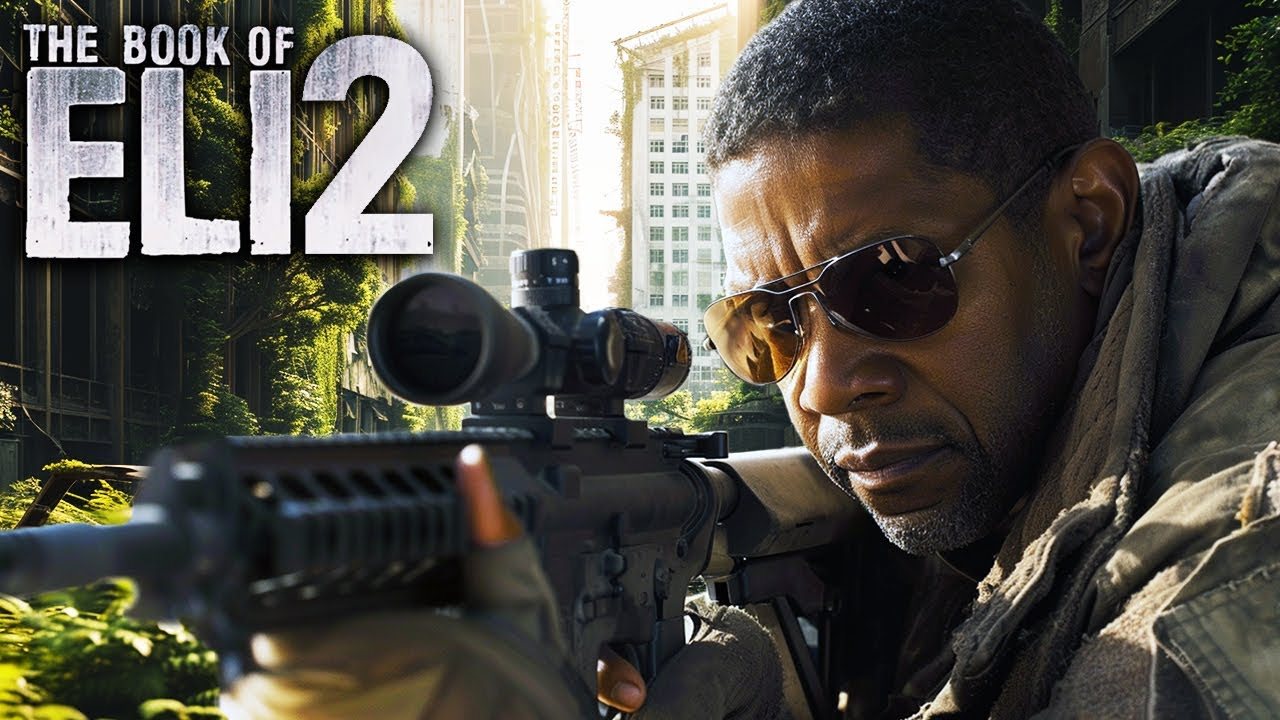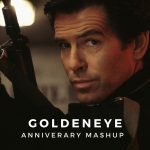THE BOOK OF ELI 2 Teaser (2024)

In 2010, “The Book of Eli” captivated audiences with its poignant narrative and stark depiction of a post-apocalyptic world. Directed by Albert and Allen Hughes, the film starred Denzel Washington in the role of Eli, a lone wanderer on a mission to safeguard a sacred book that held the potential to reshape humanity’s destiny. Set against a backdrop of desolation and despair, Eli’s journey unfolded as a harrowing odyssey through a landscape scarred by war, violence, and the struggle for survival.
Now, over a decade since its original release, fans of “The Book of Eli” are eagerly anticipating the continuation of this gripping saga with “The Book of Eli 2 Teaser (2024).” While details about the sequel remain sparse, the mere mention of a teaser trailer has ignited excitement and speculation among audiences worldwide. This essay explores the enduring appeal and potential direction of “The Book of Eli 2” based on the themes and legacy established by its predecessor.
Central to the allure of “The Book of Eli” was its portrayal of Eli as a reluctant yet formidable hero in a world stripped bare of civilization’s comforts. The character’s unwavering dedication to protecting the sacred book, revealed to be a Bible in a world devoid of faith and hope, resonated deeply with viewers. Denzel Washington’s powerful performance brought complexity and depth to Eli, transforming him into an iconic figure of resilience and moral conviction.
The post-apocalyptic setting of “The Book of Eli” served not only as a backdrop but as a character in itself—a hauntingly beautiful yet brutal testament to humanity’s capacity for destruction and perseverance. The Hughes Brothers’ direction imbued every frame with a sense of desolation and urgency, capturing the stark contrasts between the barren wastelands and the remnants of a once-thriving civilization.
Thematically, “The Book of Eli” explored profound questions about faith, morality, and the preservation of knowledge in the face of adversity. The revelation of Eli’s mission to deliver the sacred book to a safe haven where it could be reprinted and shared with future generations underscored the film’s underlying message of hope and renewal amidst chaos and despair.

As anticipation builds for “The Book of Eli 2 Teaser (2024),” speculation abounds regarding the direction the sequel might take. Will the narrative continue Eli’s journey, exploring new challenges and revelations about the book’s significance? Will the sequel delve deeper into the origins of the post-apocalyptic world and the events that led to its devastation? Or will it introduce new characters and conflicts that expand upon the themes of survival and redemption?
The teaser trailer for “The Book of Eli 2 (2024)” promises to offer glimpses into this dystopian universe, teasing audiences with tantalizing imagery and hints of what lies ahead. Whether it’s the haunting landscapes, the return of familiar faces, or the promise of new mysteries waiting to be unraveled, the teaser serves as a tantalizing invitation into a world where every revelation and discovery holds profound implications for the characters and their quest.
Visually, “The Book of Eli 2 Teaser (2024)” is expected to build upon the atmospheric cinematography and visual style that defined its predecessor. From sweeping vistas of desolate landscapes to intimate moments of reflection and conflict, the teaser is likely to evoke the same sense of awe and unease that characterized the original film.
In conclusion, “The Book of Eli 2 Teaser (2024)” represents not just a continuation of a beloved narrative, but an opportunity to delve deeper into themes of faith, resilience, and the human spirit in the face of overwhelming odds. As audiences eagerly await the film’s release, the teaser trailer serves as a tantalizing glimpse into a world where the quest for survival and enlightenment intertwine in unexpected ways. Whether it’s revisiting familiar characters or exploring new dimensions of the post-apocalyptic landscape, “The Book of Eli 2” promises to captivate and challenge viewers, reaffirming its place as a modern classic in the realm of dystopian cinema.











